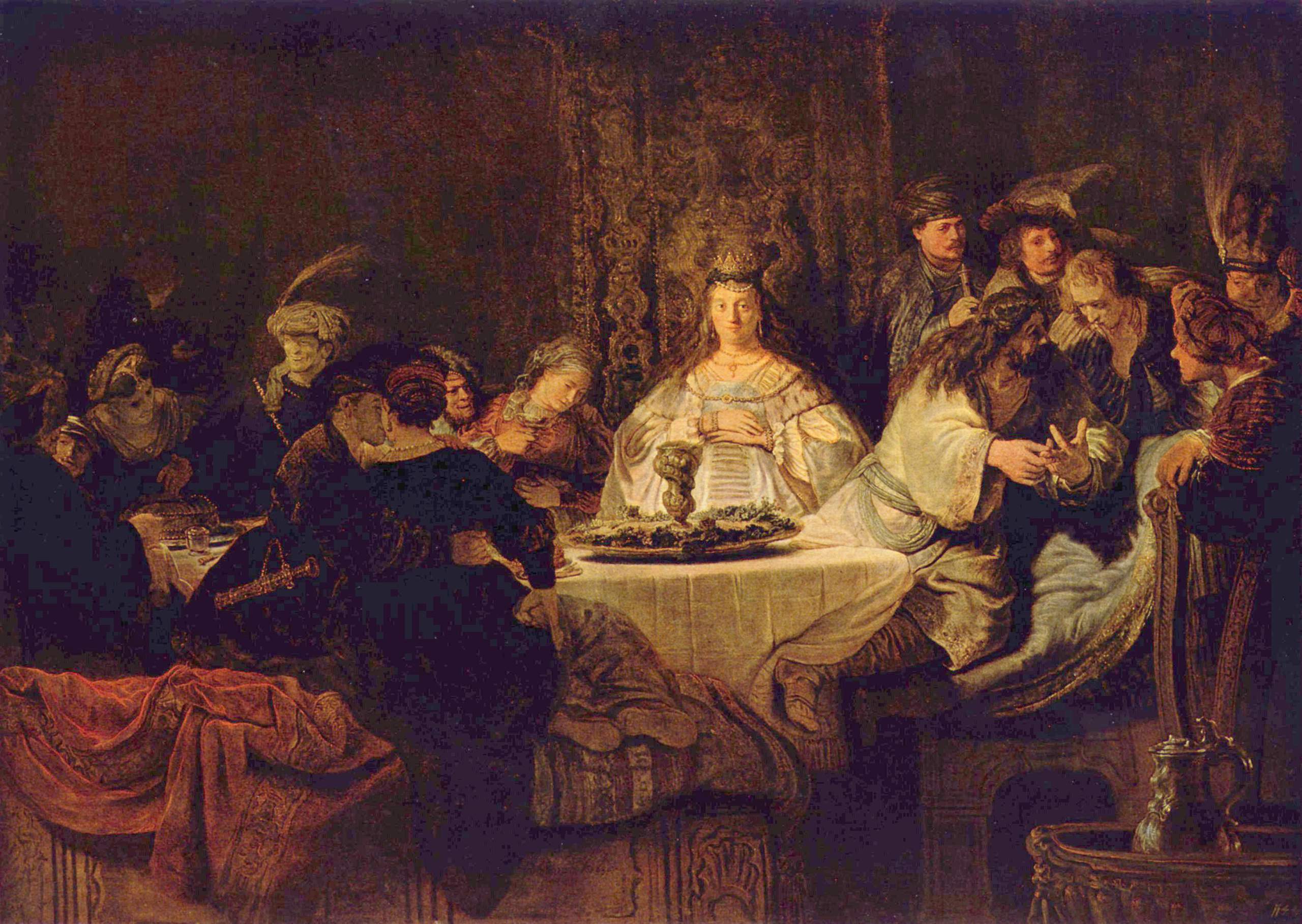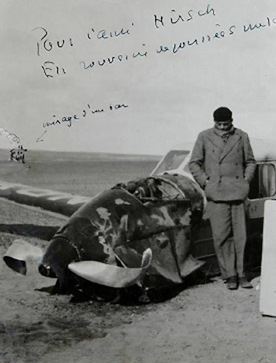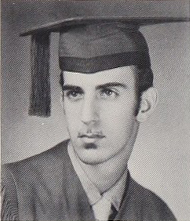|
Droodles
''Droodles'' was a syndicated cartoon feature created by Roger Price and collected in his 1953 book ''Droodles'', though the term is now used more generally of similar visual riddles. Form The general form is minimal: a square box containing a few abstract pictorial elements with a caption (or several) giving a humorous explanation of the picture's subject. For example, a Droodle depicting three concentric shapeslittle circle, medium circle, big squaremight have the caption "Aerial view of a cowboy in a Port-a-john."Price, Roger. ''Droodles'', Simon & Schuster, 1953. Origins The trademarked name "Droodle" suggests "doodle", "drawing" and "riddle".Annikki Kaivola-Bregenhoj, ''Riddles: Perspectives on the use, function and change in a folklore genre'', Studia Fennica Folkloristica, 10 (Helsinki: Finnish Literature Society, 2001), p. 62, http://oa.finlit.fi/site/books/detail/12/riddles/. However, the form of the droodlea riddle expressed in visual formhas earlier roots, for exam ... [...More Info...] [...Related Items...] OR: [Wikipedia] [Google] [Baidu] |
Braingames
''Braingames'' is an American educational program shown on HBO in the mid-1980s. It was a half-hour program consisting of brain-teasing animated skits (either stop-motion or cartoon) designed to make the viewers think. It was HBO's first attempt at a show focused on educational skits, predating Crashbox by 15 years. Episodes The series pilot was aired in 1983 (featuring a female Sphinx in the intro), with another five episodes (this time with a gentleman with an egg for a head) made in 1984-1985 with new games and a few brought back from the pilot. After that, an episode called "The Best of Braingames" was made which had five of the best Braingames games from episodes 1, 3, and 4, plus a special episode of "The Riddler" (see below) where Chuck Roast read off the winners of a contest for "The Absitively Posolutely Worst Riddles in America". Every episode in the series ends with a sad and crying voice saying, "Braingames...is now...over." On the "Best of" episode, an equally sad voi ... [...More Info...] [...Related Items...] OR: [Wikipedia] [Google] [Baidu] |
Roger Price (comedy)
Roger Price (March 6, 1918 – October 31, 1990) was an American humorist, author and publisher, who created ''Droodles'' in the 1950s, followed by his collaborations with Leonard B. Stern on the ''Mad Libs'' series. Price and Stern became partners with Larry Sloan in the publishing firm Price Stern Sloan. Biography Price was born in Charleston, West Virginia, and grew up in the mining town of Widen, West Virginia. He graduated from Greenbrier Military School in 1934, then attended the University of Michigan (1934–1936) and the American Academy of Art in Chicago (1936–1938). During the 1940s, he wrote for ''The Bob Hope Show'' and worked with Hope on a newspaper humor column. On Broadway he performed in Arthur Klein's musical revue ''Tickets, Please!'' (1950), and he contributed sketch material to Leonard Sillman's ''New Faces of 1952''. Price hosted the television panel show ''How To'' (1951), and he was a panelist on other game shows of the early 1950s: ''Who's There?'' ' ... [...More Info...] [...Related Items...] OR: [Wikipedia] [Google] [Baidu] |
Riddle
A riddle is a statement, question or phrase having a double or veiled meaning, put forth as a puzzle to be solved. Riddles are of two types: ''enigmas'', which are problems generally expressed in metaphorical or allegorical language that require ingenuity and careful thinking for their solution, and ''conundra'', which are questions relying for their effects on punning in either the question or the answer. Archer Taylor says that "we can probably say that riddling is a universal art" and cites riddles from hundreds of different cultures including Finnish, Hungarian, American Indian, Chinese, Russian, Dutch and Filipino sources amongst many others. Many riddles and riddle-themes are internationally widespread. In the assessment of Elli Köngäs-Maranda (originally writing about Malaitian riddles, but with an insight that has been taken up more widely), whereas myths serve to encode and establish social norms, "riddles make a point of playing with conceptual boundaries and cross ... [...More Info...] [...Related Items...] OR: [Wikipedia] [Google] [Baidu] |
American Game Shows
American(s) may refer to: * American, something of, from, or related to the United States of America, commonly known as the "United States" or "America" ** Americans, citizens and nationals of the United States of America ** American ancestry, people who self-identify their ancestry as "American" ** American English, the set of varieties of the English language native to the United States ** Native Americans in the United States, indigenous peoples of the United States * American, something of, from, or related to the Americas, also known as "America" ** Indigenous peoples of the Americas * American (word), for analysis and history of the meanings in various contexts Organizations * American Airlines, U.S.-based airline headquartered in Fort Worth, Texas * American Athletic Conference, an American college athletic conference * American Recordings (record label), a record label previously known as Def American * American University, in Washington, D.C. Sports teams Soccer * Ba ... [...More Info...] [...Related Items...] OR: [Wikipedia] [Google] [Baidu] |
Mad Libs
Mad Libs is a phrasal template word game created by Leonard B. Stern, Leonard Stern and Roger Price (comedy), Roger Price. It consists of one player prompting others for a list of words to substitute for blanks in a story before reading aloud. The game is frequently played as a party game or as a pastime. The game was invented in the United States, and more than 110 million copies of ''Mad Libs'' books have been sold since the series was first published in 1958. History Mad Libs was invented in 1953 by Leonard Stern and Roger Price. Stern and Price created the game, but could not agree on a name for their invention. No name was chosen until five years later (1958), when Stern and Price were eating Eggs Benedict at a restaurant in New York City. While eating, the two overheard an argument at a neighboring table between a talent agent and an actor. According to Price and Stern, during the overheard argument, the actor said that he wanted to "ad-lib" an upcoming interview. The a ... [...More Info...] [...Related Items...] OR: [Wikipedia] [Google] [Baidu] |
Leonard B
Leonard or ''Leo'' is a common English masculine given name and a surname. The given name and surname originate from the Old High German ''Leonhard'' containing the prefix ''levon'' ("lion") from the Greek Λέων ("lion") through the Latin '' Leo,'' and the suffix ''hardu'' ("brave" or "hardy"). The name has come to mean "lion strength", "lion-strong", or "lion-hearted". Leonard was the name of a Saint in the Middle Ages period, known as the patron saint of prisoners. Leonard is also an Irish origin surname, from the Gaelic ''O'Leannain'' also found as O'Leonard, but often was anglicised to just Leonard, consisting of the prefix ''O'' ("descendant of") and the suffix ''Leannan'' ("lover"). The oldest public records of the surname appear in 1272 in Huntingdonshire, England, and in 1479 in Ulm, Germany. Variations The name has variants in other languages: * Leen, Leendert, Lenard (Dutch) * Lehnertz, Lehnert (Luxembourgish) * Len (English) * :hu:Lénárd (Hungarian) * Lenart ... [...More Info...] [...Related Items...] OR: [Wikipedia] [Google] [Baidu] |
Antoine De Saint-Exupery
Antoine is a French given name (from the Latin ''Antonius'' meaning 'highly praise-worthy') that is a variant of Danton, Titouan, D'Anton and Antonin. The name is used in France, Switzerland, Belgium, Canada, West Greenland, Haiti, French Guiana, Madagascar, Benin, Niger, Burkina Faso, Ivory Coast, Guinea, Senegal, Mauritania, Western Sahara, Morocco, Algeria, Tunisia, Chad, Central African Republic, Cameroon, Equatorial Guinea, Gabon, Republic of the Congo, Democratic Republic of the Congo, Burundi, and Rwanda. It is a cognate of the masculine given name Anthony. Similar names include Antaine, Anthoine, Antoan, Antoin, Antton, Antuan, Antwain, Antwan, Antwaun, Antwoine, Antwone, Antwon and Antwuan. Feminine forms include Antonia, Antoinette, and (more rarely) Antionette. As a first name *Antoine Alexandre Barbier (1765–1825), a French librarian and bibliographer *Antoine Arbogast (1759–1803), a French mathematician *Antoine Arnauld (1612–1694), a French theologian, phi ... [...More Info...] [...Related Items...] OR: [Wikipedia] [Google] [Baidu] |
The Little Prince
''The Little Prince'' (french: Le Petit Prince, ) is a novella by French aristocrat, writer, and military pilot Antoine de Saint-Exupéry. It was first published in English and French in the United States by Reynal & Hitchcock in April 1943 and was published posthumously in France following liberation; Saint-Exupéry's works had been banned by the Vichy Regime. The story follows a young prince who visits various planets in space, including Earth, and addresses themes of loneliness, friendship, love, and loss. Despite its style as a children's book, ''The Little Prince'' makes observations about life, adults and human nature. ''The Little Prince'' became Saint-Exupéry's most successful work, selling an estimated 140 million copies worldwide, which makes it one of the best-selling in history. The book has been translated into over 505 different languages and dialects worldwide, being the second most translated work ever published, trailing only the Bible. ''The Little Prince'' ... [...More Info...] [...Related Items...] OR: [Wikipedia] [Google] [Baidu] |
Ship Arriving Too Late To Save A Drowning Witch
''Ship Arriving Too Late to Save a Drowning Witch'' is an album by American musician Frank Zappa, released in May 1982 and digitally remastered in 1991. It features five tracks composed by Zappa, and one song, "Valley Girl", co-written with his daughter, Moon Zappa, then a teen, who provided the spoken monologue mocking Valley girls, including phrases like "Gag me with a spoon!". The album's first half consists of studio recordings, while the second half consists of live recordings. Production Side one was recorded at Zappa's Utility Muffin Research Kitchen studio at his home in Los Angeles; while side two consisted of live performances from Zappa's fall 1981 U.S. tour with studio overdubs. The live material was originally intended for a double album tentatively titled either ''Chalk Pie'' or ''Crush All Boxes II'', which was scrapped after Zappa's record distributor requested a single album instead. The cover art for the album (from which it gets its name) shows the classic Dr ... [...More Info...] [...Related Items...] OR: [Wikipedia] [Google] [Baidu] |
Frank Zappa
Frank Vincent Zappa (December 21, 1940 – December 4, 1993) was an American musician, composer, and bandleader. His work is characterized by wikt:nonconformity, nonconformity, Free improvisation, free-form improvisation, sound experiments, Virtuoso, musical virtuosity and satire of American culture. In a career spanning more than 30 years, Zappa composed Rock music, rock, Pop music, pop, jazz, jazz fusion, orchestral and ''musique concrète'' works, and produced almost all of the 60-plus albums that he released with his band the Mothers of Invention and as a solo artist. Zappa also directed feature-length films and music videos, and designed album covers. He is considered one of the most innovative and stylistically diverse musicians of his generation. As a self-taught composer and performer, Zappa had diverse musical influences that led him to create music that was sometimes difficult to categorize. While in his teens, he acquired a taste for 20th-century classica ... [...More Info...] [...Related Items...] OR: [Wikipedia] [Google] [Baidu] |


